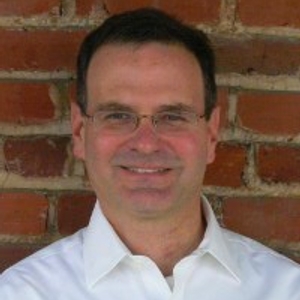Staunton, Va.–To meet the need for news and commentary on perhaps the greatest challenges facing the United States today – human-caused global warming and a projected energy shortage — Conserve Magazine was launched today.
After Hurricane Katrina, Al Gore’s film “An Inconvenient Truth,” the Democratic takeover of Congress and unusual weather nationwide, 2007 may be the year that Americans wake up to the urgency of the challenge presented by global warming and polluting energy sources.
“For more than a decade, scientists have been telling us that burning fossil fuels is dangerous for the climate which sustains our way of life,” said Erik Curren, PhD, the editor of the new magazine. “Now, big business and leaders of major religious groups have also joined the call to cut our greenhouse pollution. Yet, the American public remains confused.”
In North America, 84 percent of adults are aware of global warming, but only 43 percent consider it a serious problem while 13 percent have never heard of climate change at all, according to a poll taken by A.C. Nielsen at the end of January. By contrast, in Europe, 97 percent have heard of the issue and 57 percent think it’s serious.
“While the mainstream media has increasingly stepped in to bridge this awareness gap since Hurricane Katrina in 2005, Americans still remain unconvinced that action is urgent,” said Curren. “Meanwhile, precious time to act is lost.”
NASA’s James Hansen, the dean of American climatologists, says we only have a decade left to drastically cut our greenhouse pollution or else we will face disastrous and irreversible consequences.
But even when people do become convinced of the urgency of cutting CO2 emissions, they tend to focus on quick fixes and place unreasonable faith in problematic new technology such as hydrogen cars, cleaner-burning coal, ethanol or even nuclear power.
“Americans love technology, and certainly some advances, like electric vehicles, do look promising,” Curren said. “But we are too quick to put our faith in untested and overly complicated schemes that may turn out to be the computer-age version of snake oil. And often the news media just eggs us on to think that new gadgets will solve all our problems.”
Scientists agree that there’s only one sure way to reduce our pollution and use less fossil energy: conservation. Not finding this perspective in existing print and online media, Curren developed and launched Conserve Magazine.
Self-described as the “new voice of doing more with less,” Conserve will offer an alternate voice not widely heard in the media in these days of cheap, abundant consumer goods: what’s good for the planet is also what’s good for our happiness.
“Beyond a certain point, buying more stuff doesn’t necessarily make you happier,” Curren said. “And we all know that our spending habits have put Americans in a hole – our trade deficit with China is scary; our ecological deficit with the Earth is even scarier. But there is a better way. We need to redefine ourselves. We should evolve away from being consumers and return to our old identity as citizens of a community and members of a family.”
The magazine’s launch issue appeared online today with original feature articles, including:
- “The Electric Car Unplugged”: A new film points the finger at GM with disturbing implications for corporate America.
- “When Homo Colossus Roamed the Earth”: William Catton, author of the 1980 sustainability classic Overshoot, thinks humans should be more sapiens and less colossus.
- “How Is Appalachian Folklore Like a Web Browser?” It’s so old, it’s new. The open-source code of sustainable living from Appalachian old-timers.
The Conserve site also offers a blog with commentary on recent news stories, such as the Virginia state apology for slavery in February and its implications for the state’s current oversized role in global warming.
Conserve plans to expand from its online presence to start producing a print edition in the future.
Curren currently writes about ecology and energy for the New Dominion and serves as a regular panelist on WVPT-TV’s monthly public affairs program “Virginia Viewpoints.” He previously published the weekly “Ecology and You” column for the Augusta Free Press.
In 2006 Curren published his first book, Buddha’s Not Smiling, an investigative report of a dispute among the Dalai Lama and other Tibetan Buddhist leaders.
Curren teaches English at James Madison University and Blue Ridge Community College and was formerly a political and communications consultant for environmental groups including the Sierra Club, the Natural Resources Defense Council and the Goldman Environmental Prize. He received a PhD from the University of California at Irvine and a BA from Washington and Lee University in Lexington, Va., both in the field of English.
Conserve Magazine can be found at www.conservemagazine.com.






